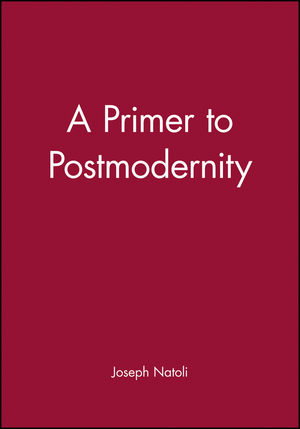A Primer to PostmodernityISBN: 978-1-57718-061-6
Paperback
224 pages
December 1997, Wiley-Blackwell
 |
||||||
" It is a fascinating text for a number of reasons. First of
all, it's fun and innovative. Second, it is deceptive, a scholarly
text posing as a funzine; examined closely, the discussion reveals
itself to be crammed with information and central points of debate
about postmodernism as a critical theory, as a cultural moment, and
as epistemology." Amy J. Elias, University of Alabama,
Birmingham
“Those of us who have been attempting to teach
postmodernism to undergraduates have long felt the need for a truly
introductory text: a text that isn’t something else
(“theory’ in general), a text that is clearly intended
for previously unexposed students rather than overexposed scholars,
a text that doesn’t fail to explain postmodernity even while
participating in its complexities. Joseph Natlaoi’s A Premier
to Postmodernity fills this need admirably.” Calvin
Thomas, University of Northern Iowa
“Natoli’s book delivers on its promise of being a
‘primer’ for students. This book is well written, its
prose is accessible and engaging, generally free of arcane jargon.
Students will warm up to the dialogue format and the references to
popular culture and media forms.” Lawrence Hatab, Old
Dominion University
“ Natoli’s A Primers to Postmodernity is accessible without being patronizing and positioned without pretending to neutrality. He obviously had fun writing some of these paradigmatic conversation sections and his enjoyment is contagious.” Victoria F. Harris, Illinois State University



